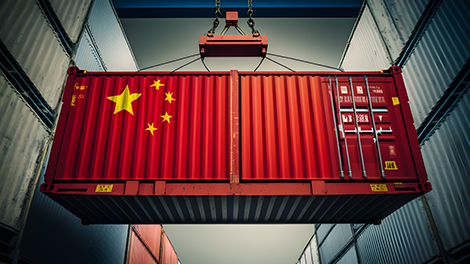Smaller-sized shippers have less negotiating leverage than big companies do with carriers and forwarders, but that is no reason to accept the freight quotes they offer are the best you can get.
Being informed and well-prepared goes a long way towards helping you get the most competitive quotes you can.
The first step is knowing what your own shipment's requirements are, as well as the right questions to ask of a potential carrier.
Information Please
The more information you can provide, the more accurately a carrier can understand their costs to handle a shipment. With this, they'll be more confident in their costs and margin. And, with this security, they'll be more likely to negotiate and provide the most competitive quote they can.
This helps another way, the more thoroughly you understand the cost components of a move, the less likely they'll be surprised after the fact. Surcharges and fees are common in every mode of shipping, and the better you know your shipments, the more they can be avoided – or at least anticipated in advance.
There are several criteria that carriers and freight forwarders use to come up with a price:
Product Description
Products are typically shipped under specific classes – determined by what the shipment is made up of. When getting a quote, the product must be accurately described so the correct class can be chosen. The class is up to half, or more, of the equation that determines the price.
Size
The size of your freight obviously has a big effect on your overall rate. For example, shipping containers are available in 20ft. and 40ft. lengths, as well as other sizes. If your cargo can fit in a smaller container, your price will generally be lower.
Weight
Weight impacts cost, too, much like dimensions and product type. But this can also often become an unforeseen way to incur extra costs. For example, ocean containers cannot be loaded unless the shipper has provided a verified gross mass (VGM) of the container that is written on the bill. Without this, a weight verification charge will be added to the invoice.
Hazardous Materials
Shipping HazMat will impact your shipping quotes. And, if you are shipping anything hazardous, you must provide a Material Safety Data Sheet. This will give the chemical and physical properties of the goods, as well as the proper storage and disposal of them.
Incoterms
Incoterms (or International Commercial Terms) are a set of commonly-used commercial terms that were created by the International Chamber of Commerce. These rules help to determine the guidelines, risks, and costs that are associated with the transportation of goods. Some of the more popular terms are Free on Board (FOB), Cost and Freight (CFR), Cost Insurance and Freight (CIF) and Ex Works (EXW).
What is NOT Included?
Just as important as WHAT questions to ask, is what's NOT included in the quote. The potential as mentioned above for fees and surcharges are big ones to look out for. Making an apples-to-apples comparison is essential, but it's not always so simple. For example, a freight forwarder might give a price that is lower than others you have received -- but, they left out that the quote does not include cargo insurance. This leaves you at risk of damage and loss that could happen in transit.
Many factors go into how carriers calculate a quote. Being a prepared, and informed, shipper is the best way to get the lowest possible rates from carriers while ensuring you maintain the service level you need.







